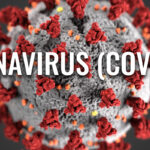- A flu vaccine does not cause you to get sick. The viruses in the vaccine are either killed (shot) or weakened (nasal spray/mist), which means they do not cause infection.
- The “stomach flu” and influenza are not the same thing. Influenza is a respiratory illness, not a stomach or intestinal disease. The main symptoms of the flu are fever, headache, extreme fatigue, dry cough, sore throat, and muscle aches. Nausea, vomiting, and diarrhea can occur but are more common in children than adults.
- It’s not too early or too late to get a flu vaccine. The CDC recommends that all people 6 months and older (unless contraindicated) get vaccinated as soon as the vaccine becomes available. Influenza usually peaks in February, but it can occur as late as May. It takes about 2 weeks to achieve full immunity and immunity will last through the entire season.
- You can still get the flu after the vaccine. The current flu shot protects against three strains of influenza. While there are many different flu viruses, the flu vaccine protects against the three strains that are predicted to be the most prevalent during a particular season by expert influenza researchers. The flu virus also adapts and changes, sometimes making it difficult to predict.
- The flu is highly contagious. The flu virus is mainly spread through respiratory droplets from saliva, coughs, and sneezes. These typically spread no more than 6 feet, but can live on surfaces for many hours. Handwashing is the best protection besides getting the flu vaccine.
- You can spread the flu to others before you have symptoms. Most adults are contagious beginning 1 day before symptoms develop and up to 5 days after becoming sick. That means that you may be able to pass on the flu to someone else before you even know you are sick. Children have been shown to be contagious for up to ten days. Therefore it is important to stay home from work and school to prevent the spread of the virus. It is recommended that adults stay home for at least 5 days and children for 1 week after the onset of symptoms.
- Pregnant women should get the flu shot. Women that are pregnant can and should get the flu shot but not the nasal mist. The shot will provide some protection to the baby through the mother and protection will continue if breastfeeding. Infants starting at age 6 months should get the flu shot but will receive 2 doses one month apart.
- The flu is a serious illness. Each year in the United States, on average, more than 200,000 people are hospitalized from flu complications and 36,000 people die from influenza.
- Treatment is not necessary for everyone. Most healthy people will recover fully from the flu without treatment. Treatment is recommended for the elderly, young, and those with health problems that make them at higher risk of complications. Treatment is only been shown to be effective if started within 48 hours of onset of symptoms. Some strains of the influenza virus have shown resistance to the antiviral medications.
- There are different types of Flu Vaccine. There are shots that protect against 3 strains (trivalent); shots that protect against 4 strains (quadrivalent); and shots that contain a higher dose for people age 65 and older. The FluMist intranasal vaccine is no longer recommended due to concerns over effectiveness. Ask your doctor which vaccine is right for you.
adapted from cdc.gov/flu accessed 1/29/2013




